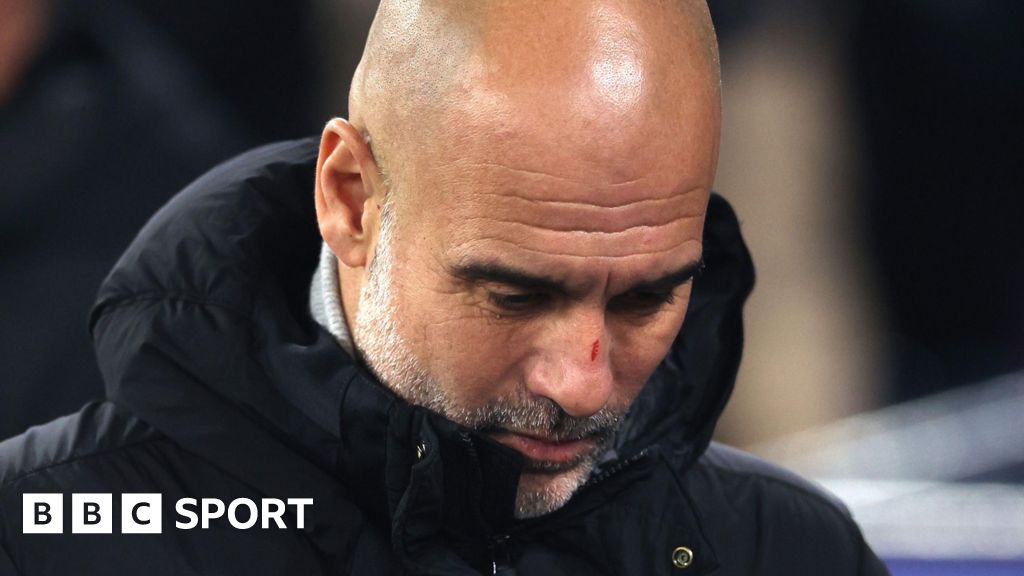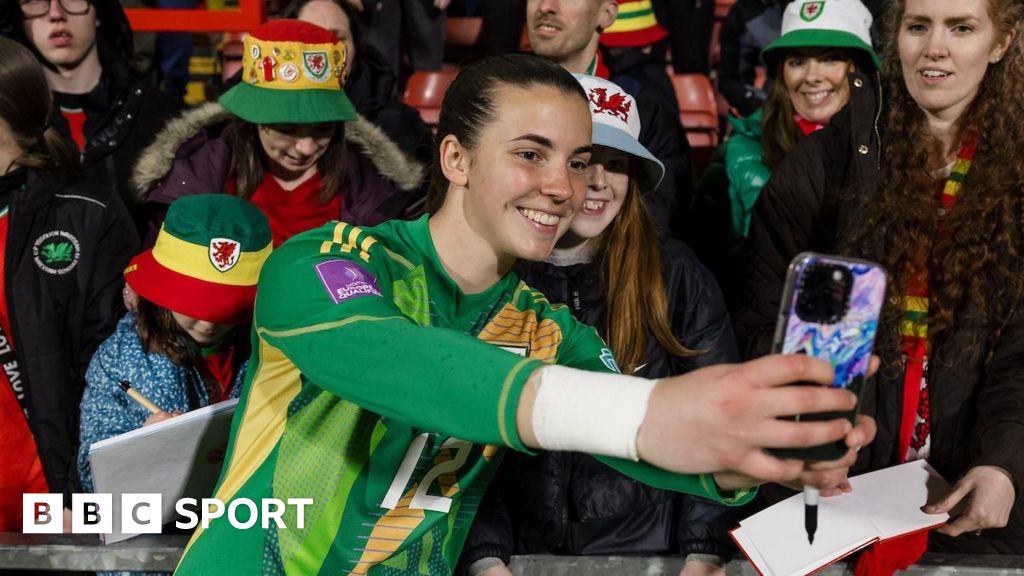ARTICLE AD BOX
To say the recent history of the Ireland women's rugby team has been akin to a rollercoaster ride is something of an understatement.
The last decade has seen historic firsts on the pitch and tempestuous times off it as the Irish side went from Six Nations Grand Slam champions and World Cup semi-finalists to failing to win a game in European rugby's elite international competition and players clashing with the governing body over the direction of the game in the country.
Now, Ireland find themselves in a position where the decade started for them - beating the world champions New Zealand and looking towards World Cup next summer.
BBC Sport takes a look into that sometimes dramatic journey.
The 2013 Women's Six Nations remains Ireland's most successful campaign to date as they clinched the title for the first time in their history.
Wing Alison Miller helped herself to a hat-trick of tries as they celebrated a hugely significant 25-0 win over England in Dublin and a clean sweep of victories was completed by narrowly defeating Italy 6-3 in a nervy final game.
Head coach Philip Doyle, assisted by Greg McWilliams, masterminded that success and the duo delivered again the following year, guiding the Irish squad to a famous first win over New Zealand in the pool stage of the World Cup, before losing to England at the semi-final stage.
The dominant Black Ferns at that stage had won four World Cups on the bounce and had not lost a game in the tournament for 23 years.
After finishing third in 2014, they were crowned Six Nations champions again in 2015, edging out France on points difference.
Mixed fortunes followed in the competition in subsequent years as England and France moved to more professional set-ups and put some distance between themselves and the chasing pack.
A runners-up finish and two third positions between 2016 and 2018 showed that Ireland remained competitive, albeit with the disappointment of an eighth place finish at the 2017 World Cup in Ireland sandwiched in between and seeming friction between the redirection of 15s players towards sevens.
Inconsistent performances in the Six Nations began to hasten some introspection of the women's game and a failure to qualify for a World Cup for the first time since 1991 precipitated an independent review process into under-par displays.
Collecting the wooden spoon in the 2023 Six Nations on the back of five defeats brought further disappointment and added to the sense of a mini-crisis around the squad.
As results and performances took a turn for the worse, events off the pitch have often been chaotic in recent years, with a sometimes fraught relationship between elite players and some administrators.
In February 2020, the IRFU issued an apology to Wales women after they were forced to have cold showers following their loss to Ireland in the Six Nations.
Later, in September 2021, as the effects of the Covid-19 pandemic were still being felt, the governing body launched a review after Ulster and Connacht players at a women's interprovincial match in Dublin had to get changed beside bins.
Covid guidelines in place at the time meant that women's rugby was not classified as 'elite' sport so the changing rooms at Energia Park were not open.
Controversy raged two months after as IRFU chief executive Philip Browne re-emphasised the organisation's commitment to the women's game, while acknowledging that structures needed to be addressed after Women's rugby director Anthony Eddy was criticised by current and former players for insisting the 15-a-side game had not been overlooked.
Ireland front row Cliodhna Moloney famously likened Eddy's comments to "slurry spreading" as relations between many Ireland squad members and a section of the sport's leading administrators deteriorated.
In December of that year, a large group of past and present Irish rugby players escalated their grievances as they were signatories of a letter to the Irish Government expressing a loss of "all trust and confidence in the IRFU".
The letter requested government support in enacting "meaningful change" in the women's game in Ireland.
In response, the IRFU said it "refuted the overall tenor of the document" and was disappointed by the timing of it.
A report published a year later saw the IRFU commit 1m euros to boost facilities and pathways development in the women's game following an independent review.
A revival in the women's game has since manifested itself in various ways, that third place finish in the Six Nations in April and the recent wins over the two southern hemisphere giants in quick succession among the most tangible.
The introduction of central contracts for many of the 15s squad has increased the level of professionalism significantly and the addition of a Celtic Challenge involving Scottish, Welsh and Irish sides to supplement the interprovincial series involving Leinster, Munster, Ulster and Connacht has proved of benefit in terms of competitive match action.
The tournament involving teams from the three Celtic nations will return in December 2024 with an expanded 10-round format, to provide increased preparation ahead of next summer's World Cup for those involved.
Meanwhile the IRFU indicated in its four-year strategic plan published in 2024 that the women's game was a priority for the future, with focus on the grassroots game, creating winning teams. leadership and governance, investment and revenue, as well as a change in visibility and engagement.
On the pitch, Kazakhstan and Colombia were outclassed and Spain dispatched in the inaugural WXV3 event 12 months ago and since the more major scalps of Australia and New Zealand have been claimed as the upward trajectory continues.
With the World Cup less than a year away, the green shoots of recovery overseen by Bemand and his team of specialist coaches have been coming along very nicely.

 1 month ago
11
1 month ago
11








 English (US)
English (US)